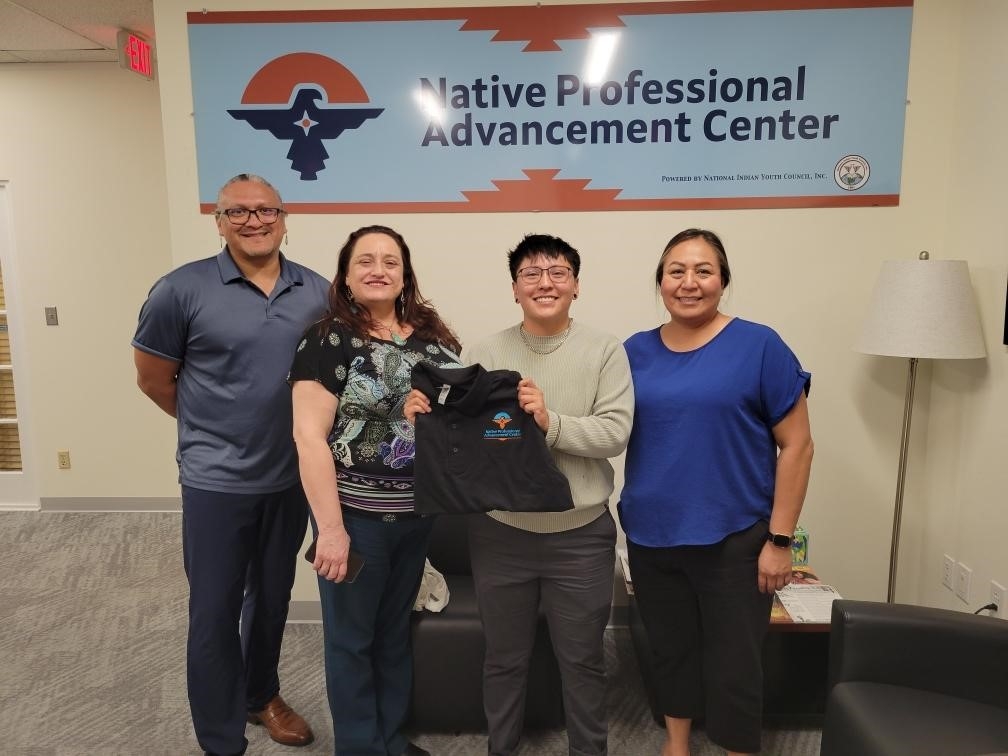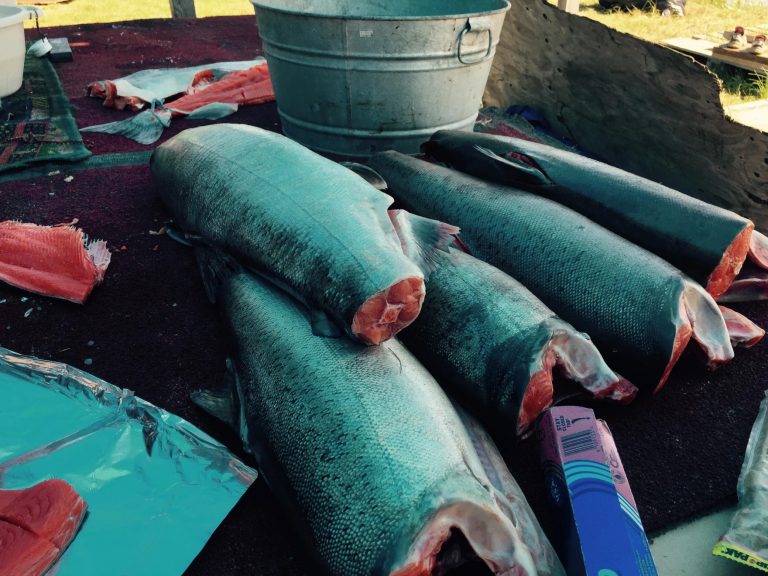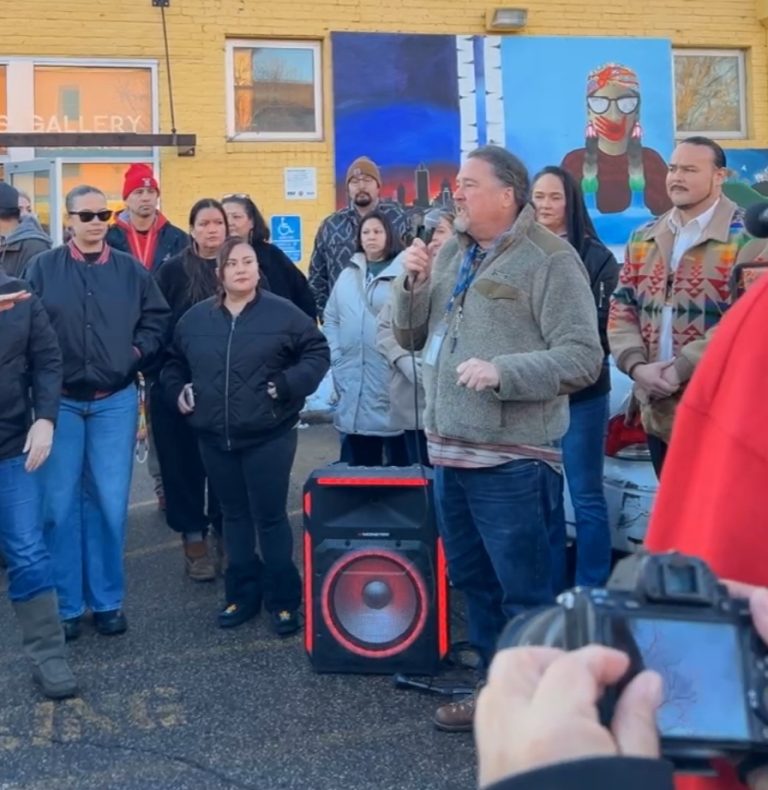Podcast: Play in new window | Download | Embed
Photo: The Native Professional Advancement Center classroom training participant Dominique Bluehorse (Diné) was the Southwestern Indian Polytechnic Institute 2024 Student of the Year. (Courtesy National Indian Youth Council / Facebook)
More than half of Native Americans in New Mexico live in urban areas and many rely on programs to help them transition from the reservation to cities, including workforce training.
But the Trump administration is proposing federal cuts that could defund such programs.
Jeanette DeDios (Jicarilla Apache and Diné) has more.
The Native Professional Advancement Center was founded in 1961 when advocates demanded the Bureau of Indian Affairs and Department of Labor create a workforce training program for Native Americans in New Mexico.
“We have a large group of people that just kind of make the urban setting a little easier for Native peoples. A lot of the time we’re coming out of our reservations and into the cities for the first time, you don’t really have that connection that you did back on the reservation.”
Deanna Aquiar (citizen of Isleta del Sur Pueblo) is director of programs and development for the center.
It has 76 worksites around the state and has helped over 4,000 Native Americans access education. It also provides training opportunities, and helps place people in jobs.
Since 1972, it’s been funded by the Workforce Innovation and Opportunities Act, but that program has been targeted for cuts by the Trump administration.
Aquiar says, if federal funding goes away, the center would likely be turned over to the state, but that could be detrimental.
“We’ve been overlooked by the states, just because we don’t have a large participant base and that often leads to the state overlooking us, and we end up invisible.”
She says it’s critical to continue programs like this to address poverty in Indigenous communities.
“The poverty that our communities have been known for for decades. To rise above that, we need access to education and good jobs. And access to that is not readily made to those who are coming off the reservation.”
The program began its new year on July 1 and is safe for now, but Aquiar is uncertain if they will be able to continue in the years to come.
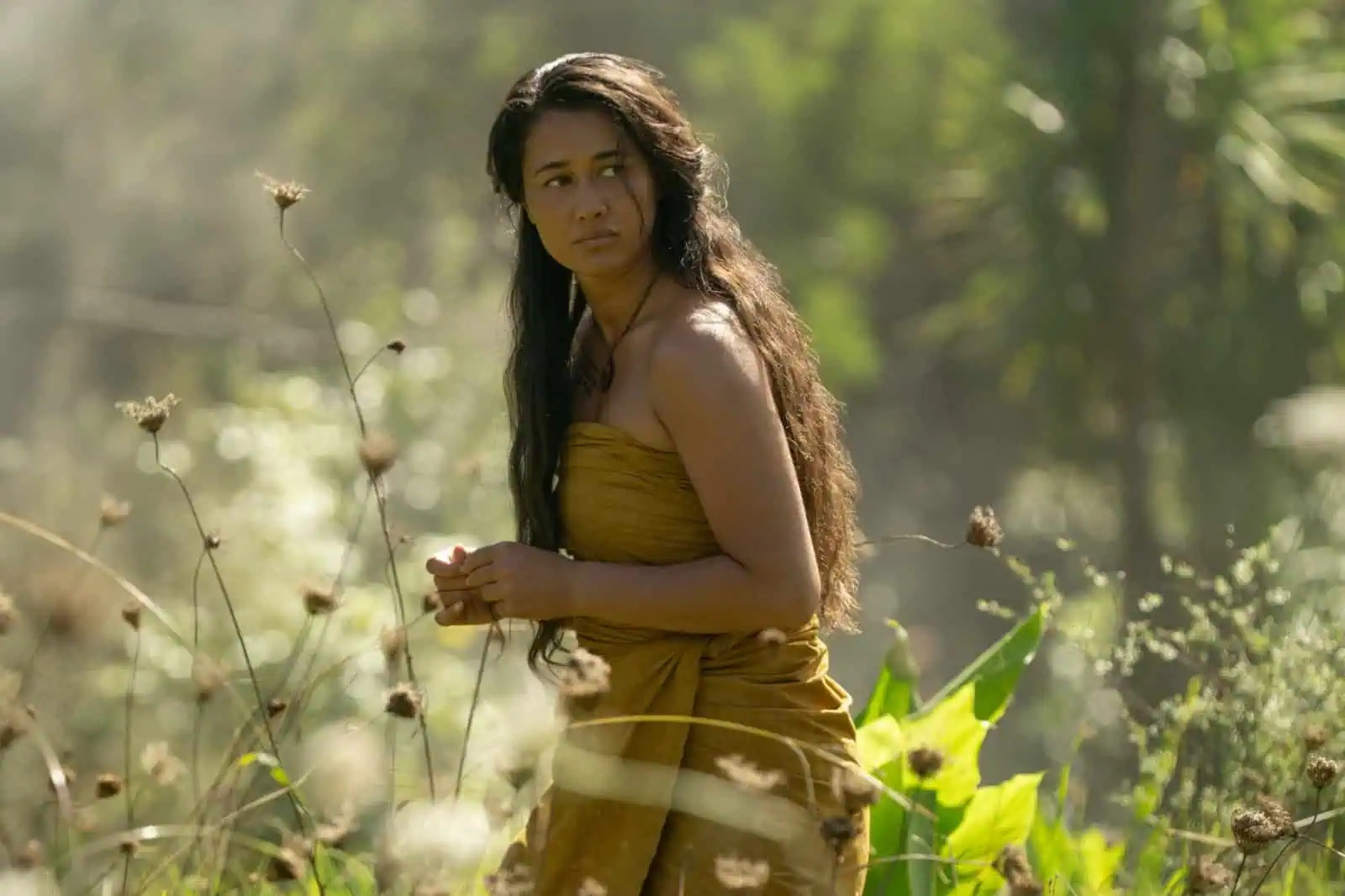
Te Ao o Hinepehinga in “Chief of War”. (Courtesy Apple TV+)
Pacific Islander actors shined at the red-carpet premiere for “Chief of War”.
The miniseries stars Jason Momoa and debuts on Apple TV+ this month.
Hawaii Public Radio’s Cassie Ordonio (Filipino and Chamorro descent) spoke to some cast members about playing Hawaiian historical figures.
Māori actress Te Ao o Hinepehinga almost turned down the job amid concerns raised on social media about non-Native Hawaiians cast to play prominent figures in “Chief of War”.
“I actually shared those concerns. I kind of sat with this and we’re at the end of the day, it does not matter what I think. The only people who deserve to decide who tells the story are Kanaka.”
She spoke with the show’s co-creators Jason Momoa and Thomas Pa‘a Sibbett to decide if the role was right for her.
Now, she’s playing the role of Kupuohi. Her character is married to Kai‘ana, who is played by Momoa.
“Honestly it’s a true honor for them to give that to me, and I hope they see how much we try to embody the kupuna (elders) and be guided by the akua (God) to honor this story. It truly is a gift.”
“Chief of War” is a highly anticipated historical drama about King Kamehameha’s unification of the Hawaiian islands in the 19th century.
While some scenes were shot in Hawai‘i, most were filmed in Aotearoa (New Zealand).
Several cast members are Māori, including prominent actors Cliff Curtis and Temuera Morrison. Other cast members are Samoan, Tongan, and Native Hawaiian.
Morrison plays Maui King Kahekili. He says he relied on cultural advisors and language experts for his role.
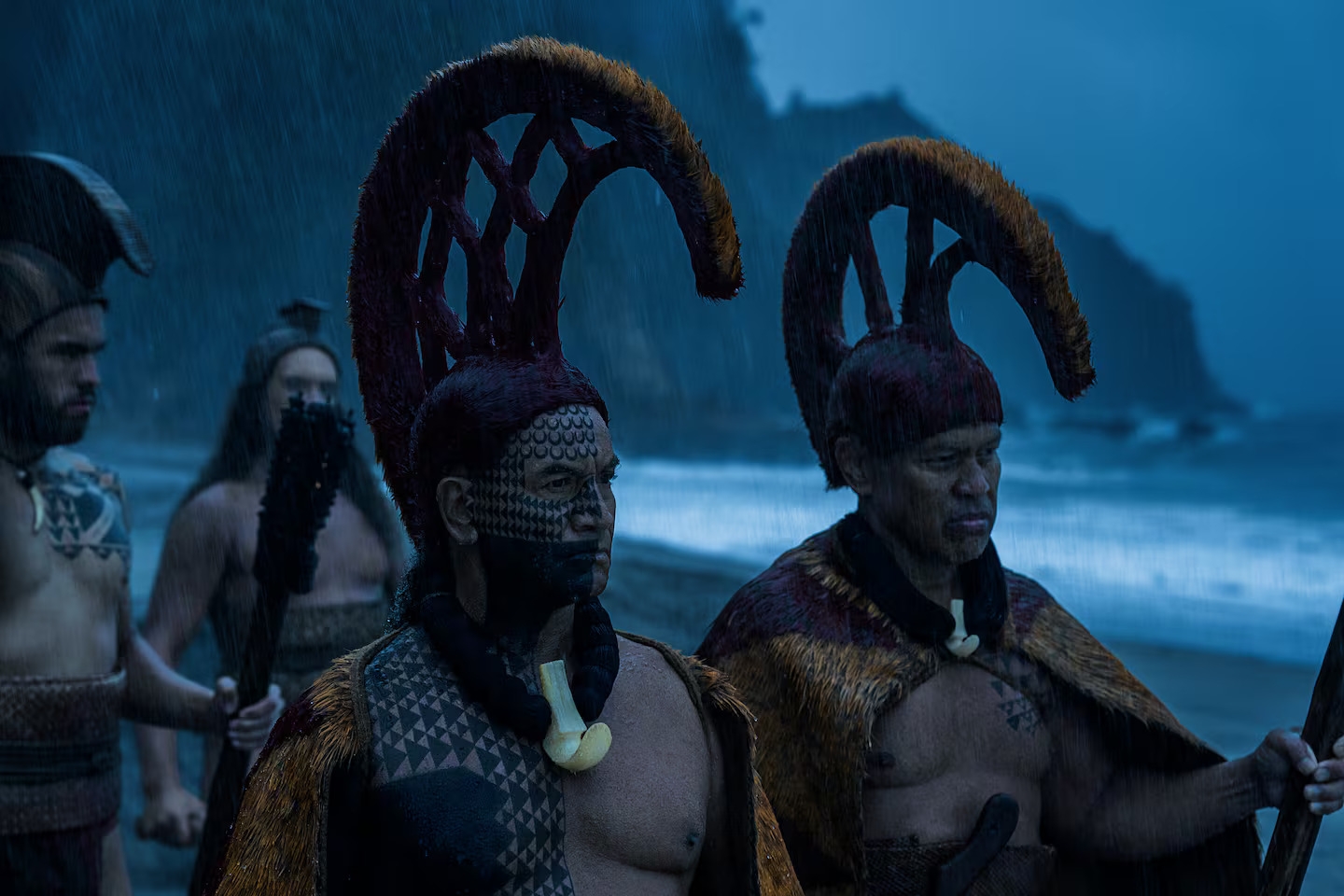
Temuera Morrison in “Chief of War”. (Courtesy Apple TV+)
There was also immense pressure after he interacted with a Native Hawaiian boom mic operator.
“I better do a good job for her, otherwise she would whack me on the head with her microphone boom.”
Jason Momoa says Māori actors have paved the way and inspired Pacific Islander actors. Aotearoa has a globally recognized film industry.
“All these Maori actors came here and they taught our kids the next generations, because I can’t teach them shit I went through just watching stuff.”
The first two episodes of “Chief of War” will be released August 1 on Apple TV+.
Get National Native News delivered to your inbox daily. Sign up for our daily newsletter today.
